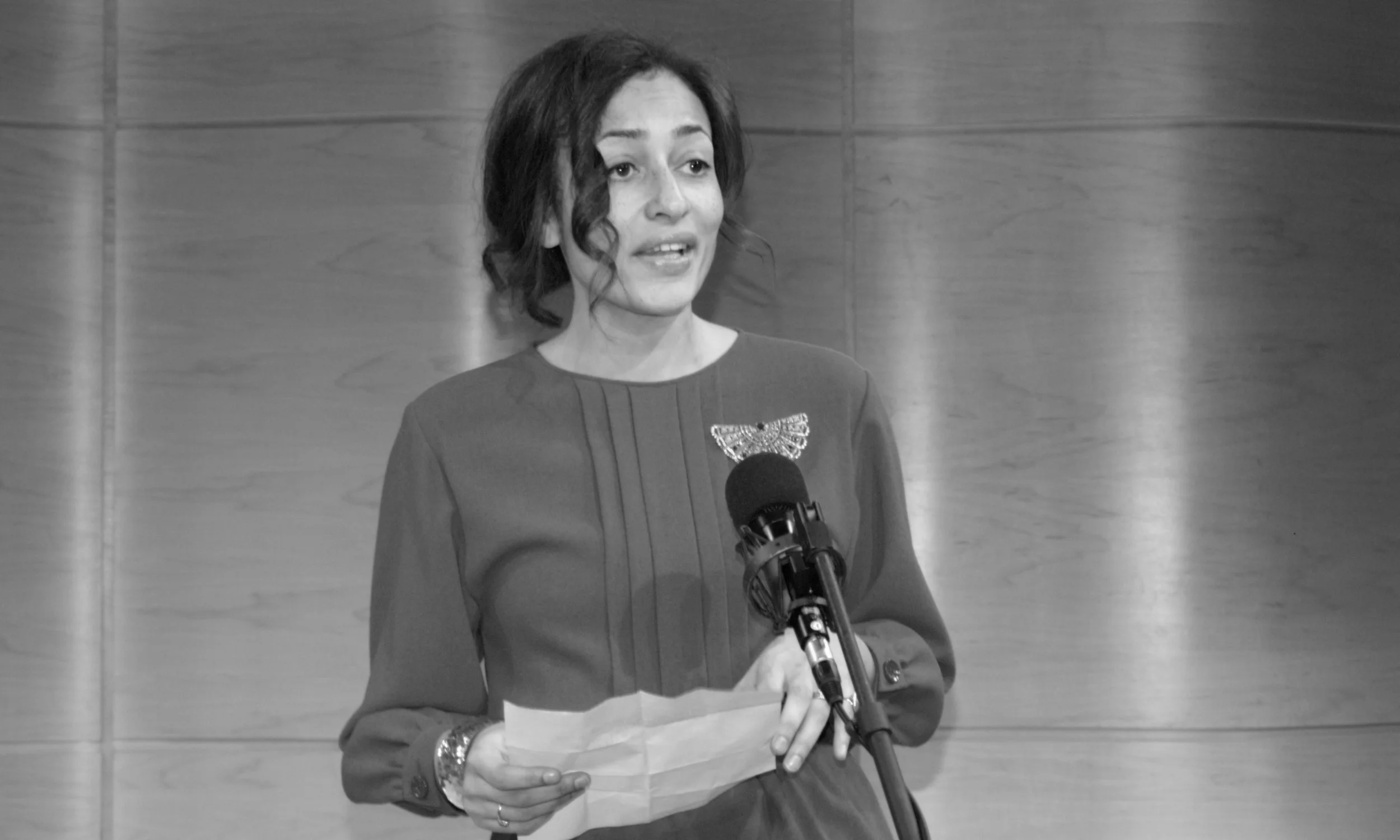ZADIE SMITH ANNOUNCES THE NATIONAL BOOK CRITICS CIRCLE FINALISTS IN 2010. IMAGE BY DAVID SHANKBONE VIA WIKIMEDIA COMMONS.
BY BEENISH AHMED
With her vibrant portraits of London’s most diverse neighborhoods, Zadie Smith found herself a happenstance champion of multiculturalism.
“[W]hen I wrote a novel about the London I grew up in,” Smith said in a public address upon receiving the Welt Literature Prize in Berlin last month. “I further did not realize that by describing an environment in which people from different places lived relatively peaceably side by side, I was ‘championing’ a situation that was in fact on trial and whose conditions could suddenly be revoked.”
Smith said she is asked now, following the vote for Brexit in her native United Kingdom and the election of Donald Trump as president in her adoptive United States, if the ideal of multiculturalism has now been shuttered more than any other question. Her response is as complex as the project of pluralism itself:
It’s true enough that my novels were once sunnier places and now the clouds have rolled in. Part of this I chalk up simply to the experience of middle age: I wrote White Teeth as a child, and have grown up alongside it. The art of midlife is surely always cloudier than the art of youth, as life itself gets cloudier. But it would be disingenuous to pretend it is only that. I am a citizen as well as an individual soul and one of the things citizenship teaches us, over the long stretch, is that there is no perfectibility in human affairs. This fact, still obscure to a twenty-one-year-old, is a little clearer to the woman of forty-one.
She relents that just a nuanced understanding of the world comes with time, progress is incremental -- and yet can feel enormous to those for whose basic rights were not always afforded upon birth.
“On November 10 The New York Times reported that nearly seven in ten Republicans prefer America as it was in the 1950s,” Smith said, “A nostalgia of course entirely unavailable to a person like me, for in that period I could not vote, marry my husband, have my children, work in the university I work in, or live in my neighborhood.”
This nostalgia for a past that was hardly livable for so many, however, is, for Smith, proof of how important it is to maintain a steady gaze forward -- and bear firmly in mind the low hum of the past.
“Those of us who remember, too, a finer music must try now to play it,” she said, “And encourage others, if we can, to sing along.”


